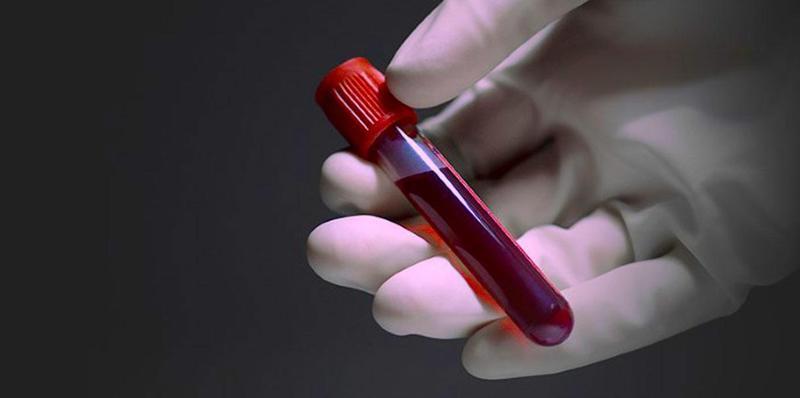This Simple Change of Diet Offers Enormous Benefits to Cancer Patients
This Simple Change of Diet Offers Enormous Benefits to Cancer Patients
Researchers have shown for the first time that by simply cutting a particular amino acid from a mouse’s diet, you can stop it from producing new blood cells entirely. That might sound like a bad thing, but would be incredibly beneficial for patients who are about to get a bone marrow transplant.
If the same thing works in humans, it would mean patients could make a simple change of diet a few weeks before a bone marrow transplant, instead of going through rounds of chemo or radiotherapy to wipe out old blood cells and make room for new, healthy ones.
Right now, one in 20 patients die as a result of bone marrow transplants, and sometimes because of the complications that arise from treatments required beforehand. So finding a way to make the process more efficient and less taxing on the body would be incredible for anyone living with blood cancer, such as leukaemia.
“This work could open up a new research field of stem cell metabolism and become the basis for a whole range of dietary therapies,” said lead researcher Hiromitsu Nakauchi from the University of Tokyo and Stanford.
The new research focussed on an amino acid called valine, which people get from eating protein.
Nakauchi and his colleagues found that valine plays a surprisingly simple and essential role in the formation of blood stem cells - without valine, it just doesn’t seem to happen, although they’re still not sure why.
Blood stem cells — or haematopoietic stem cells — are found in our bone marrow, and are the precursor cells that develop into all the crucial cells in our bloodstream. It’s these cells that need to be transplanted when someone has leukaemia.
The team found that if they deprived mice of valine via their diet, within two to four weeks, they stopped making new blood stem cells altogether.
After they cut valine from the mouse diets altogether, the team was able to successfully transplant bone marrow into the animals without needing radiation or chemotherapy first — although some of the mice did die from lack of the nutrient, which is also involved in metabolism and tissue repair.
Nakauchi and his colleagues expanded on these experiments in the lab with human blood stem cells, and showed that when deprived of valine, they stopped proliferating - a promising sign that the same thing could work in humans.
If it does, it would change the way we treat patients with blood cancer, and could greatly simplify their transplant procedure. It would also open up the transplant process to patients who can’t undergo chemotherapy or radiotherapy, such as pregnant women.
Nakauchi also thinks that by simply wiping out the blood stem cells alone through valine deprivation, it might be possible to stop blood cancer in the first place — although we’re a long way off testing that just yet.
“If such a simple and relatively less harmful therapy could be used to treat leukemias, that would be great,” Nakauchi told Karen Weintraub from Scientific American. “That’s what I’m hoping at the moment.”
Of course, depriving people of valine has its own side effects. The diet itself would be easy enough if people were fed through a drip, says Nakauchi, but obviously the treatment could be problematic if it leads to malnutrition. Overall, Nakauchi thinks it could offer a gentler approach.
“Relative to chemotherapy or radiation, the toxicity of a diet deficient in valine seems to be much, much lower,” Nakauchi explained in a press release.
“Mice that have been irradiated look terrible. They can’t have babies and live for less than a year. But mice given a diet deficient in valine can have babies and will live a normal life span after transplantation.”
While the possibilities for cancer and bone marrow transplant patients are exciting, another promising aspect of the study is that the researchers managed to uncover a whole new basic biological process that’s been hiding in plain sight all this time.
Camilla Forsberg, a blood stem cell researcher at the University of California, Santa Cruz, who wasn’t involved in the study, told Scientific American that she was “thrilled” that there are still such fundamental discoveries to be made in the body.
“It’s pretty exciting how the basic things we think about are still giving us surprises,” she said.
The next step, she adds, will be to understand why these blood stem cells are so sensitive to valine, and maybe even see if any other cell types are as dependent on other of the 20 amino acids in our bodies.
Nine of these amino acids are essential to our survival, and have to be obtained by food - so we could potentially kill off other cell types by eliminating them from our diet.
“There may be some other, similar amino acid-dependency in other stem cells and also cancer stem cells,” Nakauchi told Weintraub. “Those are the things I’m very much interested in.”
“This work could open up a new research field of stem cell metabolism and become the basis for a whole range of dietary therapies,” he added.
The research has been published in Science.
FIONA MACDONALD/Science Alert
Be the first to post a message!
